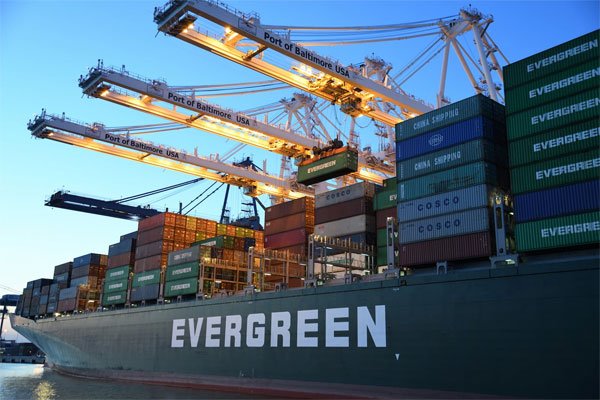Freight forwarding is a critical service within the logistics industry that entails organizing shipments for businesses or individuals to transport goods from the manufacturer or producer to a final point of distribution. A freight forwarder does not necessarily move the goods itself but instead uses a network of varying transportation modes such as ships, airplanes, trucks, and rail freight to ensure that the goods reach their destination in the most efficient manner. This complex task involves coordinating different carrier schedules, shipment loads, and types of cargo, making it essentially a multi-pronged strategy for effective supply chain management.
In the context of global trade, freight forwarding plays an important role. The freight forwarders act as an intermediary between shippers and various transportation services, leveraging their expertise in supply chain and international shipping rules, regulations, and documentation to ensure that transactions run smoothly and efficiently. This allows businesses to focus on their core operations, as they can trust that their goods will be delivered safely and efficiently, irrespective of geographical distance. Therefore, freight forwarding can significantly accelerate global trade, fostering economic development and prosperity for countries all around the world.

Basics of Freight Forwarding
A freight forwarder serves as an essential intermediary between the shipper and various transportation services. Primarily, they arrange the entire process for shippers, from storage to shipping their merchandise, including destinations such as shipping to India. They utilize established relationships with carriers, from air and truck companies to rail and ocean liners. This enables them to negotiate the best possible price for moving shippers’ goods along the most efficient route. They also handle logistical tasks such as packing, documentation, and warehousing.
Understanding the different types of shipments is very important for efficient freight forwarding. The options include air, ocean, rail, and road freight. Air freight is the fastest but typically the most expensive. Ocean freight, while slower, is cost-effective for larger shipments. Rail freight falls in the middle in terms of both speed and cost, suitable for large quantities over land. Road freight, or trucking, provides useful flexibility as it can deliver goods directly to the customer’s location, making it ideal for continental delivery or last-mile delivery.
Steps Involved in Freight Forwarding
Freight forwarding starts with a step known as the ‘Freight Quoting Process.’ This involves the forwarder providing a quote to the customer, covering all expected costs needed to transport goods from source to destination. In calculating this quote, the forwarder must consider several factors, including the type of goods to be shipped, the chosen method of transport, any particular handling requirements, insurance costs and customs fees.
Once the quote is accepted and the booking confirmed, the freight forwarder arranges pickup of the goods from the shipper. The goods are subsequently transported to a warehouse where they’re packed and prepared for transport. Throughout this procedure, it is the freight forwarder’s responsibility to ensure that everything flows without hitches and that all goods arrive undamaged at the stipulated delivery point
The next step in freight forwarding is the shipping and documentation process. The shipment is loaded onto the transport vehicle, whether that’s a ship, plane, train, or truck, and all necessary documents are prepared and processed. It’s critical that every document is correctly filled out and filed, as any discrepancies can lead to delays or extra costs.
Customs play an important role in the freight forwarding process. The forwarder is responsible for clearing the goods through customs in both the originating and destination countries. This requires a thorough understanding of the customs regulations and procedures in multiple countries, including handling duties, taxes and other paperwork.
The final step in freight forwarding is delivery and invoicing. The forwarder ensures the goods reach their final destination. Once the goods are received, the client is sent an invoice outlining the total costs.
Successful Freight Forwarding
A deep understanding of international trade laws and regulations is essential for successful freight forwarding. These laws govern every aspect of the freight forwarding process, from the freight quoting process, through shipping and documentation to customs clearance and delivery. Excellent communication and organizational skills are indispensable in this field. Freight forwarding involves coordinating many different components, requiring clear communication with various actors involved. Moreover, staying organized helps to keep track of all the moving parts, thus avoiding delays or mishaps.
Freight forwarding is an integral role in global trade that undertakes the responsibility of ensuring timely and safe delivery of goods. Wielding knowledge on the most effective modes of shipment, freight forwarders ensure that goods traverse borders seamlessly. They make use of air, ocean, rail, and road freight depending on the nature and urgency of the goods. The freight forwarding process involves several meticulous steps, from the freight quoting process and booking and pick-up procedures through to shipping, documentation, and the complex process of customs clearance. Finally, all these steps culminate in the delivery and invoicing of the goods at their final destination.
Freight forwarders, by virtue of their knowledge and skills, have a significant role in simplifying international trade. They understand the complicated network of global trade laws, making it easier for businesses to enter new markets without compromising on regulatory compliance. Navigating logistical problems and ensuring effective cargo space management are part of their day-to-day responsibilities. Indeed, these professionals are indispensable in creating a smoother, faster, and more effective international trade process.
Given its importance, the freight forwarding industry offers many opportunities for beginners to learn and contribute significantly. A career in this dynamic industry promises continuous learning and growth amidst rapid global development. Seeing the industry’s contributions to global trade up close can be a fulfilling experience. With strong communication, organization skills and an intrigue in international laws, anyone can make a mark in this industry and contribute to the global economy. Hence, we encourage fresh talents to explore the freight forwarding industry possibilities and consider it a fulfilling career option.
















